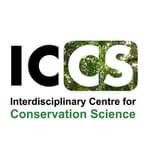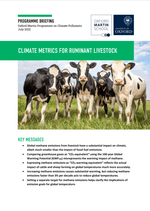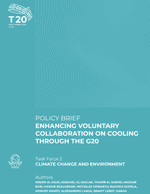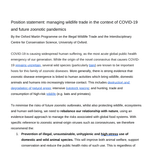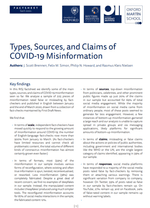Milner-Gulland, E.J., Cugnière, L., Hinsley, A., Phelps, J., ‘t Sas-Rolfes, M., Verissimo, D. (2018) Evidence to Action: Research to address the illegal wildlife trade. Briefing note to policy-makers and practitioners. doi: 10.31235/ osf.io/ 35ndz Contributors: Arias, M., Challender, D., Clements, T., Duffy, R., Durant, S., Esmail, N., Laird, J., Margulies, J., Massé, F., Olmedo, A., De Ornellas, P., Roberts, D., Robinson, J., Roe, D., Rowcliffe, M.
View BriefingTools and expertise to improve the evidence base for national and international Illegal Wildlife Trade policy already exist but are underutilised. Tapping into these resources would produce substantive benefits for wildlife conservation and associated sectors, enabling governments to better meet their obligations under the Sustainable Development Goals and international biodiversity conventions.
This can be achieved through enhanced funding support for inter-sectoral research collaborations, engaging researchers in priority setting and programme design, increasing developing country research capacity and engaging researchers and community voices in policy processes.
Key messages
- Illegal wildlife trade (IWT) is a major and widespread threat to a wide range of wildlife species, both plants and animals, which is provoking substantial public interest. It is also a governance and livelihoods issue.
- IWT is a complex, fast-changing and heterogeneous issue. Solutions need innovative thinking across natural and social sciences, arts and humanities, including incorporating local and indigenous knowledge.
- Significant uncertainty exists surrounding the scale, threat, and appropriate responses to IWT. A systematic approach is needed to address the most critical evidence gaps.
- Despite the sense of urgency, acting without a robust understanding of the issues, and an appreciation of the uncertainties, can lead to inadequate, unethical, or counterproductive outcomes for both wildlife and people.
- A greater emphasis on designing interventions in order to learn, impact evaluation, and sharing of datasets and lessons is required from all actors, including governments, funders, researchers and NGOs.
- Better aligning public policy discourse and action with research evidence would make IWT policy more effective.
